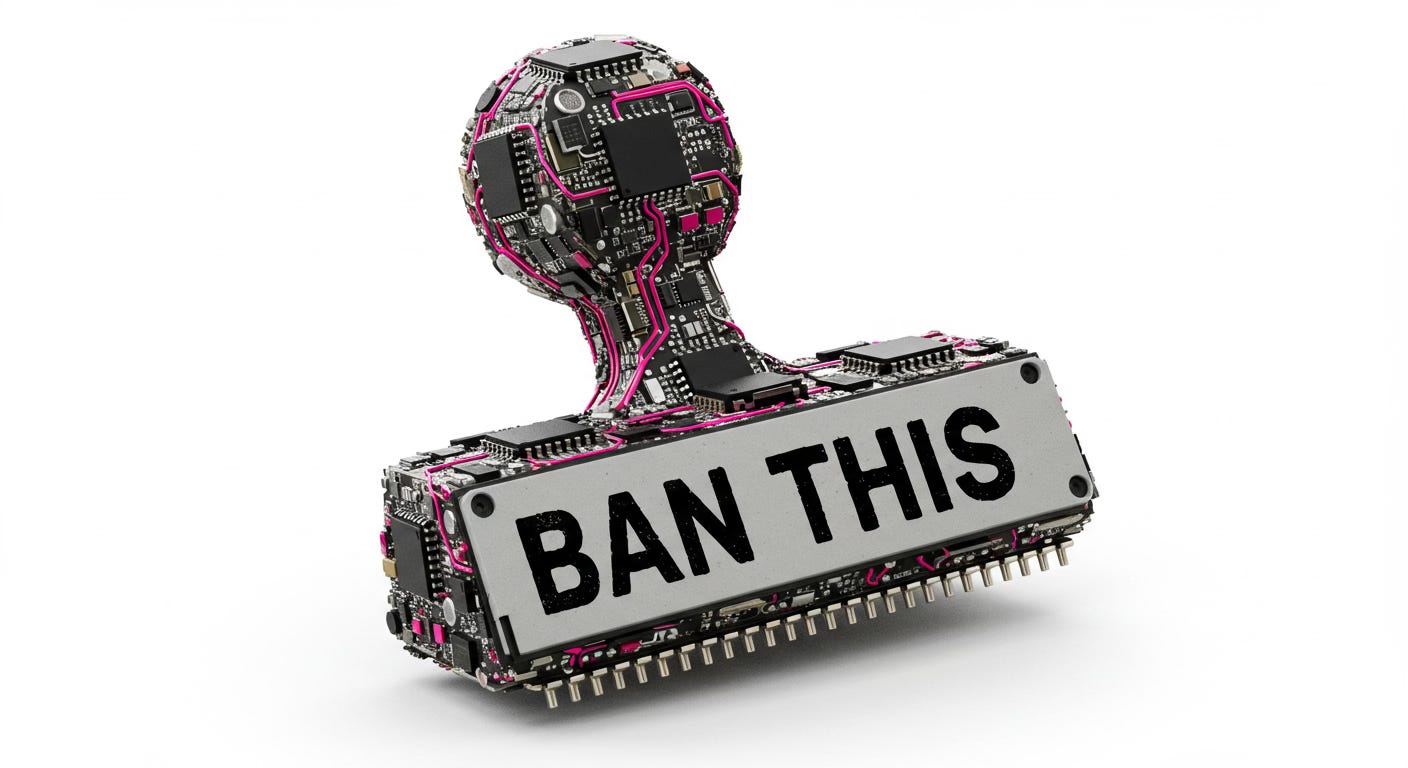The Snake in the AI Garden
Remember when the biggest AI news was ChatGPT being "lazy"? Those were simpler times. As we enter the Year of the Snake, the AI landscape is getting a lot more... interesting. And by interesting, I mean the kind of interesting that makes tech executives lose sleep, government officials reach for their "ban this immediately" rubber stamps, and even Donald Trump decides to share his AI wisdom (“If it’s fact, if it’s true, and nobody really knows if it is, but I view that is a positive because you won’t be spending as much, and you’ll get the same result.”).
Enter DeepSeek, China's latest contribution to the AI world. About two weeks ago, this Chinese AI company dropped what can only be described as an AI bomb on the tech world. Their latest models claim to match or outperform U.S.-developed AI systems—allegedly at a fraction of the cost. Whether or not these claims hold up (some experts claim the numbers do not add up), the mere announcement sent shockwaves through the market. And in an ironic twist of events, just as businesses worldwide were processing this development, Australia and South Korea banned DeepSeek from government devices, citing security concerns.
Listen to my conversation with Kelly Higgins-Devine on ABC Radio, about DeepSeek’s impact on our AI literacy. Source: ABC Radio.
DeepSeek’s app was downloaded 16 million times within its first 18 days, nearly double the 9 million downloads that OpenAI’s ChatGPT achieved.
A Tale of Two Realities
DeepSeek presents an interesting paradox. It's served from China and tends to produce content that reflects certain political sensitivities (let's call it what it is—censorship). But it’s also open-source, which means anyone can download the LLM and run it locally. The biggest surprise? If you run the LLM outside China, the results, naturally, do not go through (algorithmic) censorship. You can try it yourself, it’s simpler than you think.


Running DeepSeek in-house can provide a version of output free from external influence. But it comes with its own challenges. Though running the full-size model requires a really powerful machine (at least 512GB of RAM, and ideally with several fast GPUs), that not every business can afford. Less powerful machines can only run “less intelligent”, smaller versions of the model.
From Moon Shots to Mind Shots
The parallels between today's AI race and the space race are striking. In the 1960s, government investment and competitive pressure gave us everything from satellite communications to memory foam mattresses (yes, really). Today, the AI race is pushing boundaries in language processing, image generation, and data analysis, and soon we will see many unexpected inventions, too.
But here's the kicker: just as businesses that embraced space-age technologies thrived, companies today can't afford to sit on the sidelines of the AI revolution. The question isn't whether to adopt AI but how to build infrastructure that can keep pace with its evolution.
The Playbook for Business Leaders
So, what's a business leader to do in this new AI arms race? Here's your battle plan:
Set up AI monitoring teams (and no, not just IT folks). Get them to identify and quickly assess newly emerging technologies against existing and potential use cases in your organisation. No budget for a team like that? At least keep reading this newsletter.
Develop clear policies for AI adoption and risk management. Frankly, if you haven’t already, stop reading now, and get to work. Reach out if you need help.
Launch company-wide AI literacy programs (because everyone needs to speak this new language). You’d be surprised how many people lack a fundamental understanding of the limitations of generative AI.
Consider strategic partnerships with tech innovators or academic institutions. Of course, I am biased here, but I hear from organisations that I work with that this constant exposure helps them a lot in remaining agile and resilient.
The key is maintaining flexibility while ensuring security—a balance that's becoming increasingly crucial as more players enter the AI space.
Not If, But How
We're not just witnessing technological evolution; we're part of a transformation as significant as the space race. DeepSeek isn't just another AI model—it's a wake-up call: there will be more of them coming, and very, very soon. The question isn't whether your business will be affected by this AI race but how you'll position yourself to thrive in it.
The space race gave us satellites; this race might just give us superintelligence. I, for one, can’t wait to figure out how to put it to work. For us.







